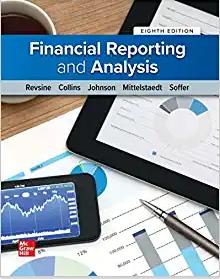On January 1, 20X1, Railcar Leasing Inc. (the lessor) purchased 10 used boxcars from Railroad Equipment Consolidators
Question:
On January 1, 20X1, Railcar Leasing Inc. (the lessor) purchased 10 used boxcars from Railroad Equipment Consolidators at a price of $8,749,520. Railcar leased the boxcars to the Reading Railroad Company (the lessee) on the same date. The lease is for eight years and calls for eight annual payments of $1,500,000 to be made at the beginning of each year, with the first payment due on January 1, 20X1. The boxcars have a nine-year remaining useful life, the lease contains no renewal or bargain purchase option, and possession of the boxcars reverts to the lessor at the lease’s end. The lessor expects the boxcars to be worth $1,000,000 at the end of the lease term, but this value is not guaranteed by the lessee. The payments’ collectibility is reasonably certain, with no important uncertainties regarding unreimbursable costs to be incurred by the lessor. The lessor has structured the lease to earn a rate of return of 12.0%.
Required:
1. What method must Railcar Leasing Inc. use to account for the lease?
2. Prepare Railcar’s amortization schedule for the first three years of the lease. (Round all amounts to the nearest cent.)
3. Prepare all journal entries for Railcar for 20X1 and 20X2. Assume that it reports on a calendar- year basis. You do not have to make journal entries to reclassify any of the receivable to current assets.
Step by Step Answer:

Financial Reporting And Analysis
ISBN: 9781260247848
8th Edition
Authors: Lawrence Revsine, Daniel Collins, Bruce Johnson, Fred Mittelstaedt, Leonard Soffer





